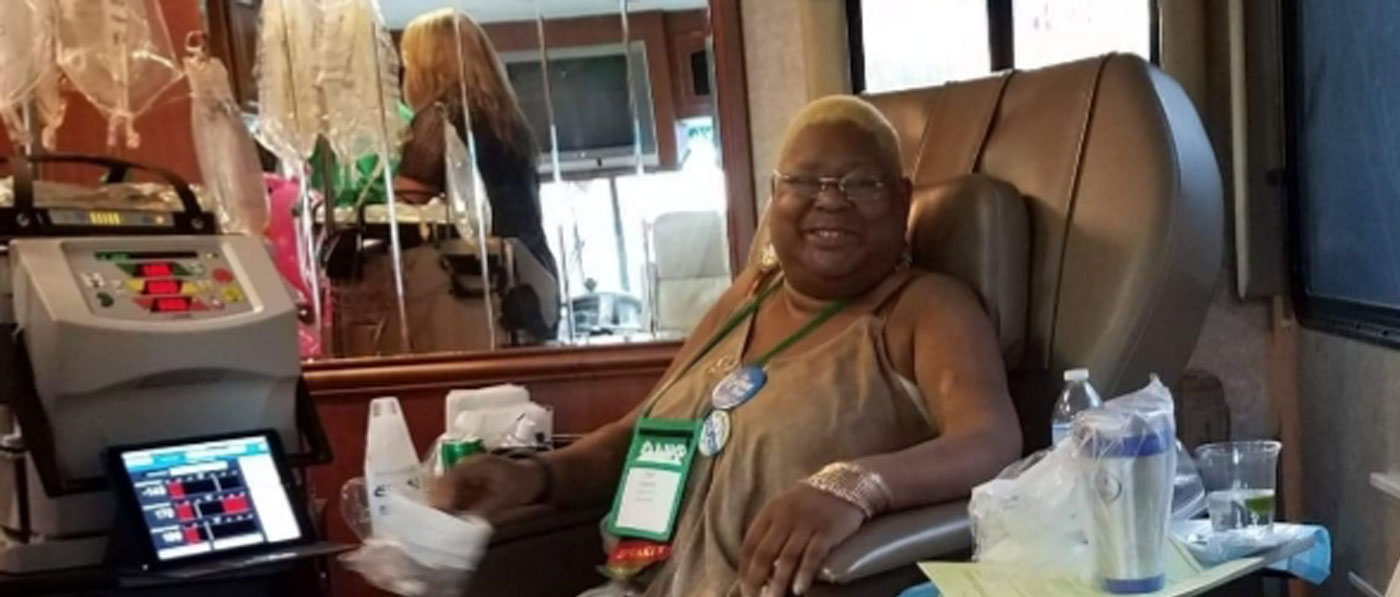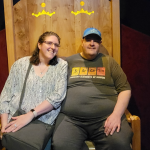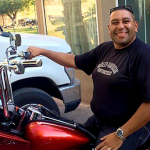Staying Strong, Speaking Up
Dawn on Advocating for Herself and the Kidney Community
As a person with end stage renal disease (ESRD), Dawn has received a lot of medications, advice, procedures, treatments, and bad news. But when it comes to her health, there are two things Dawn won’t take … she won’t take it for granted or take no for an answer.
Dawn’s sense of self-empowerment has helped her get what she wants from life — and from her dialysis therapy. In many cases, that has meant being a strong, outspoken self-advocate.
“Health empowerment is summed up in one word to me — control,” says Dawn with passion. “Overcoming the fear of speaking up for yourself, asking for what you want, learning about what options are best for you, and not accepting the first thing that is offered. Finally, being willing to step out of a bad situation into one that will best serve and meet your needs.”
These were not lessons that always came easy for Dawn. There were times when she didn’t listen to her instincts and later regretted the decision.
“In 1992, I went to see my gynecologist because I thought I was pregnant,” Dawn recalls. “I went in for a pregnancy test and came out with a referral to a nephrologist.”
Dawn was diagnosed with glomerulonephritis, a disease that damaged her kidneys and forced her to start dialysis. When she asked about peritoneal dialysis (PD), doctors said the risk of infection was very high, which scared her off the idea of home therapy for a long time.
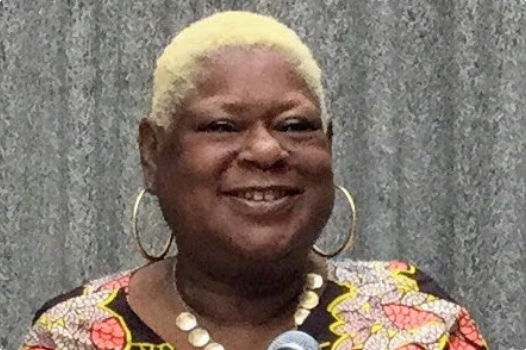
After 3½ years in-center, a new doctor convinced Dawn to overcome her fears and try PD. She experienced incredible success with the therapy and stayed on it for 10 years, stopping only because she received a transplant.
Adjusting to the new kidney took time, and there were many ups and downs. Dawn knew she’d be back on dialysis if her kidney failed and that she greatly preferred home therapy. But she didn’t know if PD would still be possible. She began learning about home hemodialysis (HHD), which was new at the time. When her body rejected the donated kidney after a few years, Dawn immediately approached her care team about this promising home therapy option.
“The NxStage System One had just come out, and I heard all of this great news about it,” she recalls. “When they told me I couldn’t go back to PD, I said, ‘HHD is what I want to do.’”
However, that’s when Dawn hit another roadblock. Because she had a catheter, doctors again said home therapy might be unsafe for her (catheters are considered a bigger infection risk than other types of vascular access). They told her she wasn’t a good candidate for HHD. But Dawn knew she was capable, and she fought for herself and her health.
“Why can’t I have an opportunity at a better quality of life just because I have a catheter?” Dawn argued. “I told the doctors and nurses, ‘I can take care of myself, just show me what to do!’”
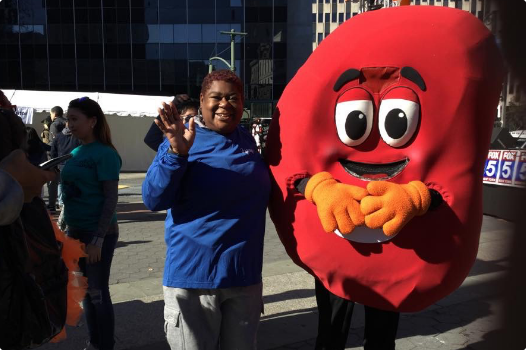
Dawn persisted and found a home training nurse who gave her a chance, and she’s been successful on HHD ever since. But it wouldn’t be the last time she had to fight to try a new mode of therapy.
In 2017, after she learned that the FDA cleared nocturnal (nighttime) dialysis therapy with the NxStage System One, she was intrigued.
“I’m a data girl, and I read all these articles in scholarly journals about better outcomes on nocturnal HHD,” Dawn explains. “And I’m thinking, ‘Holy mackerel man, I have to do this!’ I just knew with the slower, more extended treatments, I would feel better.”
With a journal article in hand, Dawn approached her care team and told them she wanted to try nocturnal HHD. Although they knew about the therapy, they were hesitant. It was brand new to them, and they had no plans, policies, or procedures in place. But Dawn didn’t want excuses; she wanted to do what was best for her health. So, she didn’t give up.
“My administrator got things arranged,” Dawn recalls with excitement. “I was one of the first patients in New York to start a nocturnal program, but I really had to show up and advocate for myself.”
Beyond self-advocating, Dawn receives plenty of support and encouragement from her mom, sister, and daughter, whom she calls “my world.” She has also formed a strong bond with her home training nurses — or as Dawn calls them, “my angels.”
“They have been my champions,” says Dawn, “They welcome you and teach you how to become independent and empowered. They teach you disease management skills and to see past kidney disease and live your life. Each one has something special that helps keep me pushing forward.”
Now a nocturnal HHD patient for several years, Dawn pushes herself to live life as normally as possible and says that being in control of her therapy makes her feel more empowered. She does treatments every other night and says she feels great — she can work, exercise, travel with friends, go out dancing, hang out with family, and enjoy a wide variety of foods and drinks.
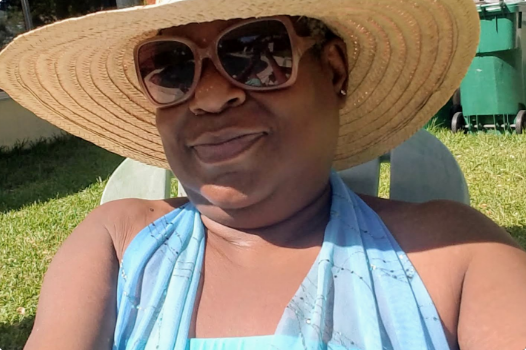
One of Dawn’s other passions is advocating for the kidney community. And with more time on her hands during the COVID-19 pandemic, she ramped up involvement — bringing her knowledge and skills to the national level. She served as co-chairperson for the National Forum of ESRD Networks Kidney Patients Advisory Council (KPAC) and as a patient advisor for a national kidney research study.
Wherever she goes, Dawn tries to be a source of encouragement and inspiration for others with kidney disease. Her advice to fellow patients is to have goals for the future and work on them every day.
“When you have a chronic illness, often you don’t think about 10 or 20 years down the road,” she explains. “A lot of times, you’re thinking, ‘I just want to live until next Tuesday.’ But you have to set goals and create a big picture for yourself. I want patients to know this is something they can do and that kidney disease doesn’t have to hold them back.”
Patient Advocates are compensated for their time for NxStage sponsored activities.
The reported benefits of peritoneal dialysis may not be experienced by all patients. Peritoneal dialysis does involve some risks that may be related to the patient, center, or equipment. These include, but are not limited to, infectious complications. Examples of infectious complications include peritonitis and exit-site and tunnel infections. Non-infectious complications include catheter complication such as migration and obstruction, peritoneal leaks, constipation, hemoperitoneum, hydrothorax, increased intraperitoneal volume, and respiratory and gastric issues. It is important for healthcare providers to monitor patient prescriptions and achievement of adequate fluid management goals. Patients should consult their doctor to understand the risks and responsibilities of performing peritoneal dialysis.
Home hemodialysis with NxStage systems involves risks, and you may not experience the potential benefits of such therapy. NxStage systems require a prescription for use. If a doctor prescribes more frequent therapy, vascular access is exposed to more frequent use which may lead to access related complications, including infection of the site. If your doctor prescribes “nocturnal” home hemodialysis at night while you and a care partner are sleeping, your risks increase due to the length of treatment time and delayed response to alarms when waking from sleep.

